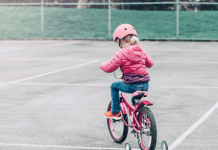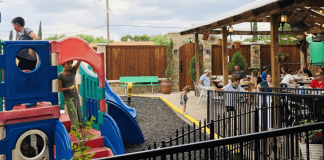Each year on April 7, the World Health Organization celebrates its anniversary with World Health Day! Each year on this day, the WHO seeks to draw attention to a specific health issue that concerns people all over the world. This year, the WHO will highlight the need to create wellbeing amongst all communities.
Wellbeing in All Families
When thinking about the WHO’s goal this year to draw attention to the wellbeing of all communities, I can’t help but think of the storms we’ve all weathered during the past two years in a pandemic. Personally, I’ve felt the struggle. Professionally, I’ve watched people navigate uncharted waters while gasping for air.
We won’t know the long-term effects of the pandemic for a very long time, but it’s clear that the trauma and fatigue felt by many is widespread.
 The Trauma & Fatigue of the Pandemic
The Trauma & Fatigue of the Pandemic
Trauma is the experience of one’s safety being in jeopardy and internal resources being overwhelmed. Humans have a need to feel that we have the physical and emotional resources to manage any given situation. Still, trauma happens when you don’t feel you have sufficient resources to get through.
People have been taxed emotionally, physically, mentally, and financially for the past two years. Trauma can show up in a multitude of ways:
- Panic attacks
- Anxiety
- Avoidance
- Mood swings
- Frequent anger and crying
- Forgetfulness
- Feelings of helplessness
- Chronic headaches and fatigue
- Feeling out of control with eating, drinking, gambling
- Inability to stick to commitments
- Disconnection from others
Moms are resilient. We’ve gotten help for our kids and marriages. We’ve changed jobs or created a new normal. We’ve made strides to get our lives back on track.
Everyone’s story is different, but if you’re reading this, I know you’ve struggled somehow. The past two years have overwhelmed our resources.
Managing Through Fatigue & Trauma
In this month of World Health Awareness, I encourage you to be mindful of what you’re doing for yourself moment-by-moment to tune into your emotional and physical needs. Here are a few professional suggestions to help get back to safe waters:
Connect with people.
Take stock of those who lift you up and help you feel good. Who can you be vulnerable with? Who do you trust? Seek these people out.
Create rituals.
Forming habits helps you feel stable and secure. Unfortunately, we tossed aside many of the routines and traditions we depend on for stability during the pandemic. We forget that small things help keep us grounded.
Get empowered.
Positive self-talk does help. Create phrases that help you feel empowered, strong, and courageous. Remind your body and brain how capable, wise, and worthy you are.
Learn stress relief strategies.
Imagine a “safe place” in your mind that you can go to when you feel overwhelmed, stressed, and maxed out. Wherever that place is (and it can be anywhere that helps you feel calm), take deep, long breaths while mentally putting yourself in that space. This will move you from trauma’s “fight or flight” into a calming place. Doing this over and over will build back your emotional strength.
You aren’t alone. We’ve all struggled during the pandemic, and getting back on track will happen. The stress we’ve all felt during the past two years looks different for everyone, but IT’S THERE. So give yourself grace as you release the fear we all had to varying degrees and create an even more robust, more resilient foundation in your current life.













